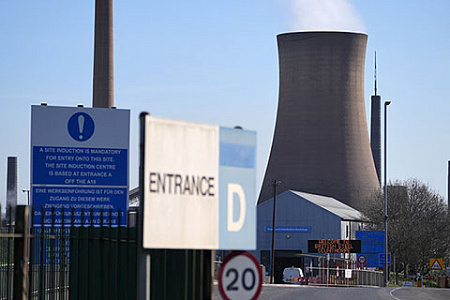
The British parliament has passed an emergency law authorizing the government to rescue the steel giant British Steel, which is under threat of closure. Now the authorities can look for a new owner of the enterprise instead of the Chinese Jingye and manage it. In London, they are unhappy that the Chinese owners demanded too large support measures. Neither the Labor Party, nor even part of the Tories, wanted to lose an enterprise that was strategically important for the country’s security.
In almost one day, on April 12, the law was urgently passed in both houses of Parliament. The British media note that not only Labor and leftist MPs, but even a number of members of the Conservative Party, spoke out in favor of state management of the company.
With the royal sanction of Charles III, the law came into force on Sunday night.
The authorities argue that they cannot allow the blast furnaces in Scunthorpe to stop working. If production is suspended, there is a high probability that it will not be possible to restore it. 2.7 thousand people may lose their jobs.
Russian analysts also point out that if the plants were closed, Britain would become the only G7 country that would lose the ability to produce its own steel. We are talking about a strategically important production facility. Including in the context of plans to increase spending on the military-industrial complex and the production of shells.
In order to pass the law in just six hours, members of parliament had to interrupt their holidays – the authorities consider the issue so urgent and intervention is needed so quickly.
It is unlikely that the state will be able to make a profit from the management of the enterprise. British Steel has long been an unprofitable asset. China’s Jingye has been negotiating for a long time about what support measures it needs from Downing Street in order to continue production and not deprive metallurgists of jobs. But no compromise solution could be reached.
The Chinese complained that, despite investments of 1.2 billion pounds, the company remains unprofitable. The blast furnace replacement project involved an investment of 2 billion pounds. London was ready to pay part of the costs (500 million pounds), but the owners insisted that the state provide twice as much money. And in March, they announced that they could shut down production altogether by June.
As a result, the government decided to act decisively. Nationalization is becoming more and more likely, given that private owners are unlikely to want to buy out an unprofitable business.
Even the British navy may be involved in delivering coal to the furnaces at Scunthorpe. The government is actively intervening in the business of the steel industry not only in Britain. For example, former US President Joseph Biden imposed a ban on the merger of Nippon Steel and U.S. Steel. At that time, the head of the White House also argued his decision on the strategic importance of American steel enterprises, including those engaged in the military industry. Therefore, Washington did not want to allow the active presence of foreign businesses, even Japanese ones.
“The actions of the Keir Starmer government are an important step to preserve the national economy in the face of fierce competition and recession. In March, the United States imposed a 20% import tax on British steel. This has put an entire industry at risk. The trade unions have a positive attitude towards nationalization,” said Oleg Okhoshin, senior researcher at the Center for British Studies at the Institute of Europe of the Russian Academy of Sciences.
In a conversation with NG, the expert clarified that so far there has been no nationalization. There is a negotiation stage ahead with the owners. But the transition of British Steel to the public sector is becoming more and more likely.
